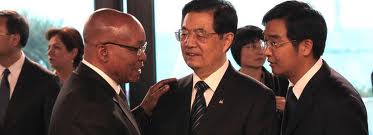The 2010 decade is seeing tectonic shifts in the balance of power around Africa. The hegemony of power that the Western world, mainly; the USA, the United Kingdom, Germany and France held with regard to Africa is slowly but surely beginning to dissipate. Over the past 60 or so decades especially after the end of World War II in 1945, the West treated Africa with overbearing and paternalistic attitude. Tim K. Muriithi on his article, The United Nations: Between Paternalism and Partnership, posits that in the post 1945 era ‘African countries were preached to rather than consulted as equals in international affairs. Paternalism though reached its peak in the after-math of the 1973 international oil crises that ultimately led to the introduction of structural adjustment programmes (SAPs) in Africa.
We are in a different epoch however and Africa as continent and individual countries within Africa are beginning to flex their muscles in global politics with varied results. The reasons though, Africa is experimenting with the muscle flex in international politics are varied, some economic and some political as well.
Economically Africa is being seen as the last frontier of economic development, especially after the global credit crunch hit western economies hard. Consequently blue-chip corporations that had hitherto been very apprehensive about investing in Africa are increasingly lightening up to the idea of investing in Africa as a means of expanding and diversifying their portfolios. Owing to Kenya’s modest 4.9% economic growth rate, international companies like; IBM, Google, General Electric, and other companies have set-foot in Kenya. These blue-chip corporations are making prudent investment decisions without due regard to reservations Western governments might have towards particular African governments. So essentially the very axis of the afro-western relationship is changing from government to government based relationships to African government to Western Corporation based relationship. Relations of these kind are mutually beneficial to both entities because, African governments on one hand need and require investments without radically altering institutional and governance status quos while western corporations on the other hand require to invest without being bogged down by ‘moral responsibilities’ imposed on them by their home governments not to invest in so called ‘pariah states’ in the West.
But perhaps the best indicators that there were tectonic shifts in the balance of power were the events coming from post Arab spring Egypt and Tunisia. The implicit and at times explicit intervention in as in the case of Libya by the west did not anticipate that Islam radical or not was going to be used as a node of political coalescence.
Elections in Tunisia ushered into power the Enhadda party, a sort of party that draws its ideological underpinning from Islamic theocracy. Although Enhadda is not an outright fundamentalist party, observers are worried that it heralds the start of an end of social-political secularism in Tunisia. Egypt is another burning crucible that shows us that the once mighty west is losing its once mighty grip on Africa. The post Mubarak Egypt, has seen the rise of the Muslim Brotherhood through its Freedom and Justice Party.
Perhaps what has western paternalism disintegrating more in Africa is the realization that a mono-polar world led by the United States is no more. Today’s world hinges on towards an oligopolistic system where powers such as India, China, Brazil, Russia and South Africa have more real power than in the past mono-polar system.
Although the death of western paternalism has its merits, it comes at a cost. Africa is facing east now, towards China. China is known for eschewing the values of democracy and rule of law, Africa has been flirting with democracy since independence. Thus Africa has failed to develop sufficient institutional bedrocks capable of dealing with fluidity in the international system. Kenya for example elected a president and a deputy president who are indictees at the International Criminal Court, it remains to be seen whether rule of law is one of their strongest virtue. Since the ascent of Mohammed Morsi to the Egyptian presidency more Coptic Christians have been killed in religious violence than were killed during Mubarak's regimes. Everybody in Africa should be very apprehensive of the Chinese, we are all sure they aren’t here for the love of it; they are here for the resources. In Kenya the Chinese have been implicated in major ivory smuggling and poaching scandals. Africa needs to develop strong intra-continental linkages, other wise we will be damned if we look West and damned if we look East.
Alex Ndungu Njeru writes from Kenya

